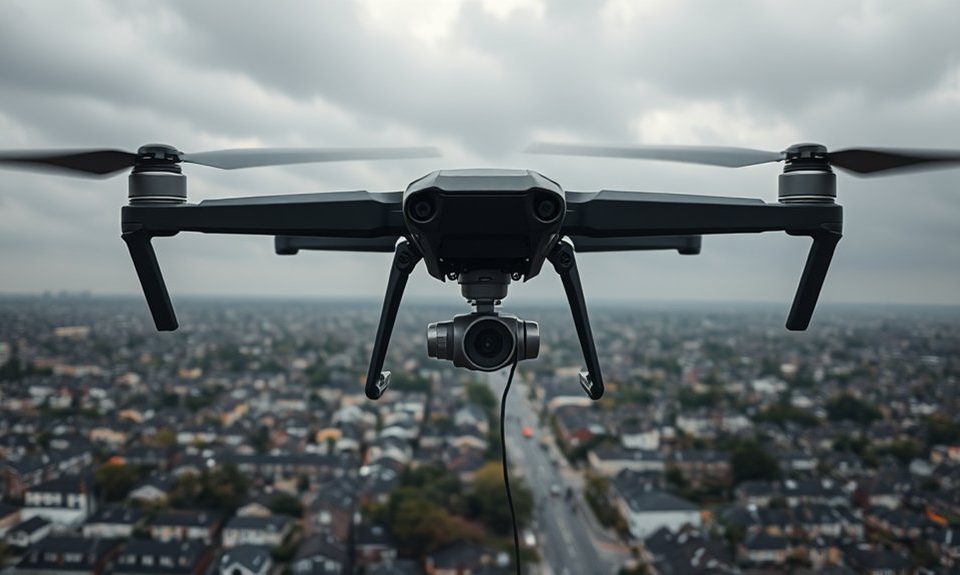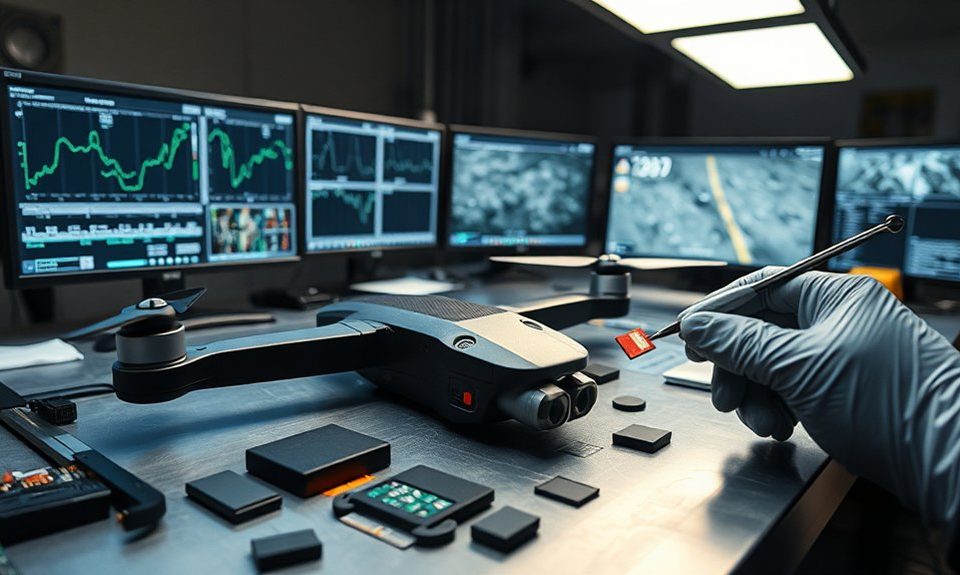Private investigators provide vital support for domestic abuse survivors through extensive documentation and evidence gathering. They conduct specialized surveillance, perform digital forensics, and maintain detailed records that meet legal standards. Their services include monitoring abuser activities, sweeping for surveillance devices, and coordinating with advocacy networks. Professional investigators help strengthen legal cases while enhancing survivor safety through risk assessment and strategic planning. Understanding their full range of capabilities empowers survivors to make informed decisions about their protection.
Key Takeaways
- Professional documentation of abuse patterns and incidents through photos, audio recordings, and detailed reports to build strong legal cases.
- Thorough surveillance and monitoring of abuser activities while maintaining strict compliance with local laws and privacy regulations.
- Expert testimony and collaboration with legal teams to provide credible third-party accounts that support survivor narratives.
- Comprehensive safety planning including risk assessments, emergency protocols, and digital security measures to protect survivors.
- Digital forensics expertise to uncover hidden threats, recover deleted evidence, and protect survivors from electronic surveillance.
The Vital Role of Private Investigators in Domestic Abuse Cases

Safety and justice often hinge on gathering reliable evidence in domestic abuse cases, making private investigators essential allies for survivors seeking legal protection or resolution. Through carefully planned investigative strategies, these professionals document patterns of abuse, collect witness statements, and preserve critical evidence that strengthens legal cases.
Private investigators support survivor empowerment by providing objective third-party documentation that validates experiences and helps break cycles of gaslighting. They employ surveillance techniques to monitor abuser behavior, verify violations of protection orders, and gather evidence of stalking or harassment. Their expertise in digital forensics can uncover hidden assets, expose online threats, and track technological abuse.
This professional support proves particularly valuable when survivors face skepticism from law enforcement or need additional evidence for court proceedings. With over 50 years experience in South Carolina investigations, agencies like Stillinger Investigations provide comprehensive surveillance and documentation services for domestic abuse survivors.
Documentation and Evidence Gathering Services
Professional investigators employ multiple documentation methods to build extensive evidence portfolios for domestic abuse survivors. Their systematic evidence collection approach creates a thorough record that supports legal proceedings and validates survivors’ experiences.
- Photographic documentation of physical injuries, property damage, and threatening communications, with detailed timestamps and authentication methods
- Audio recordings of verbal threats, harassment incidents, and witness statements, gathered in accordance with local recording consent laws
- Digital evidence collection from social media, text messages, emails, and online activities that demonstrate patterns of abuse or stalking behavior
- Written documentation strategies including detailed incident reports, timeline construction, and witness testimony compilation, maintaining strict chain-of-custody protocols
These carefully gathered materials provide survivors with concrete evidence to support protection orders, custody arrangements, and criminal proceedings while ensuring their safety remains paramount. Victims should consider working with victim/witness programs that offer confidential assistance throughout the documentation and legal process.
Surveillance and Monitoring Capabilities
Private investigators deploy advanced surveillance methods to monitor abusers’ activities while maintaining strict confidentiality and discretion. Through carefully planned covert operations, investigators document patterns of behavior, violations of protective orders, and potential threats to survivor safety. Professional investigators supplement their work with bug sweep services to protect survivors from potential electronic surveillance and unauthorized monitoring.
| Surveillance Type | Application |
|---|---|
| Mobile surveillance | Following target’s movements |
| Stationary monitoring | Observing specific locations |
| Digital tracking | Documenting online activity |
Professional investigators utilize specialized equipment and techniques to gather legally admissible evidence while prioritizing survivor security. Their mobile surveillance capabilities enable them to track abuser movements across multiple locations while remaining undetected. This critical intelligence helps survivors make informed decisions about their safety planning and legal options. Investigators coordinate closely with legal counsel to guarantee all monitoring activities comply with local laws and support the survivor’s case if court intervention becomes necessary.
Legal Support and Court Testimony

Expert testimony from private investigators can considerably strengthen domestic abuse cases in court proceedings. Their professional documentation and evidence collection methods provide critical support for legal representation while maneuvering complex courtroom dynamics.
- Private investigators maintain detailed records of evidence collection methods, establishing clear chains of custody that meet legal standards
- They provide objective third-party testimony about observed behaviors, patterns, and incidents that corroborate survivor accounts
- Investigators can explain surveillance findings and technical evidence in clear, factual terms that judges and juries can understand
- Their professional expertise helps attorneys build stronger cases by anticipating defense strategies and preparing thorough evidence presentations
Using digital forensics and specialized investigative techniques, private investigators uncover crucial evidence that may otherwise remain hidden in domestic abuse cases.
When investigators testify, they transform gathered evidence into powerful legal tools that support survivors seeking justice through the court system.
Safety Planning and Risk Assessment
Private investigators working with domestic abuse survivors must remain prepared for crisis situations through established protocols and emergency response plans. A thorough threat evaluation requires analyzing the perpetrator’s patterns of behavior, access to weapons, history of violence, and recent escalation of threatening actions. The safety assessment process integrates data from multiple sources, including court records, witness statements, and surveillance findings, to create an evidence-based risk profile that informs protective strategies. Asset search techniques help uncover hidden financial resources that an abuser may be concealing to maintain control over the victim.
Handling Crisis Situations
When facing imminent danger, domestic abuse survivors require a carefully structured safety plan and thorough risk assessment to navigate crisis situations. Professional investigators understand the critical nature of crisis management and provide both tactical support and emotional support during these intense moments.
- Investigators maintain direct communication channels with local law enforcement and emergency services, ensuring rapid response when needed
- They help survivors document threats, incidents, and evidence in real-time while maintaining strict confidentiality protocols
- Crisis response teams coordinate safe extraction plans and temporary shelter arrangements when situations escalate
- Professional investigators assist in securing emergency protective orders and serve as liaison between legal counsel and survivors
These coordinated efforts create a protective framework that prioritizes survivor safety while maintaining professional boundaries and ethical standards.
Detailed Threat Evaluation
A thorough threat evaluation forms the foundation of any meaningful survivor protection strategy. Private investigators must systematically analyze both documented incidents and subtle risk indicators to build a complete threat assessment. This includes evaluating the abuser’s access to weapons, history of escalating violence, and violation of protective orders.
Investigators need to examine the perpetrator’s behavioral patterns, financial resources, and social networks while documenting any stalking activities or surveillance attempts. They must also assess the survivor’s vulnerabilities, including workplace security, daily routines, and digital footprint. This detailed analysis helps determine the level of danger and guides the development of appropriate safety measures. By understanding the full scope of threats, investigators can better protect survivors while preserving their autonomy and dignity.
Digital Security and Cyberstalking Protection
Securing digital safety remains paramount for domestic abuse survivors who face evolving threats of cyberstalking and electronic surveillance. Private investigators help survivors protect their digital footprint and establish robust online privacy measures through thorough security assessments.
- Investigators conduct detailed audits of survivors’ devices, accounts, and digital presence to identify potential vulnerabilities and security breaches.
- They implement advanced security protocols, including two-factor authentication, encrypted communications, and secure password management systems.
- Surveillance detection measures are established to identify and counter electronic tracking through mobile devices, vehicles, or smart home systems.
- Survivors receive guidance on maintaining digital boundaries, recognizing social engineering attempts, and safeguarding personal information across social media platforms and online accounts.
Professional investigators work collaboratively with survivors to create sustainable, long-term digital security strategies that promote safety and peace of mind. With access to covert surveillance systems and advanced technology, licensed investigators can effectively detect and document any digital threats against survivors.
Working With Support Networks and Advocacy Groups
Private investigators consistently build strategic partnerships with domestic violence advocacy groups and support networks to enhance the thorough safety of survivors. Through established referral partnerships, investigators can connect clients with essential community resources, including emergency shelters, legal aid services, and trauma counseling professionals.
These collaborative relationships prove invaluable when investigators need to coordinate safe information exchanges or facilitate protective measures for their clients. Support networks often provide vital insights into local safety protocols and can help investigators better understand the unique challenges facing survivors in specific communities. By maintaining strong connections with advocacy groups, investigators guarantee their clients receive extensive support while maintaining strict confidentiality standards. This integrated approach allows for more effective protection strategies and creates a wider safety net for survivors seeking assistance. Drawing from digital forensics expertise, investigators can also help survivors recover crucial evidence from devices that may have been compromised during domestic abuse situations.
Frequently Asked Questions
How Much Does a Private Investigator Typically Cost for Domestic Abuse Cases?
Private investigator fees for domestic abuse investigations typically range from $50-200 per hour, with most cases requiring 10-40 hours. Total costs commonly fall between $500-8,000 depending on complexity and evidence needed.
What Should I Bring to My First Meeting With a Private Investigator?
Clients should bring important documents related to their case, including photos, records, and correspondence. A written timeline of personal history and relevant events helps investigators understand the full situation effectively.
Can a Private Investigator Help if My Abuser Lives in Another State?
Private investigators can assist with cross state jurisdiction cases by coordinating with local investigators, conducting digital tracking, and gathering evidence remotely. Many specialize in helping clients maintain safety across state boundaries.
How Long Does the Investigation Process Usually Take?
Investigation timelines vary substantially based on case complexity and evidence gathering requirements. Most domestic cases take between 2-8 weeks, depending on location, surveillance needs, and documentation collection processes.
Will My Abuser Know That I’ve Hired a Private Investigator?
Professional investigators employ discreet investigation tactics and maintain strict confidentiality. When properly conducted, surveillance and information gathering remain undetected by the subject, protecting the client’s safety and privacy throughout the process.
Conclusion
Private investigators serve as crucial allies for domestic abuse survivors, providing critical documentation, surveillance, and legal support services that can help guarantee safety and justice. Through methodical evidence gathering, digital security measures, and coordination with advocacy networks, PIs help empower survivors to break free from abuse. Their professional expertise in risk assessment and court testimony remains indispensable for those seeking protection and accountability through legal channels.





